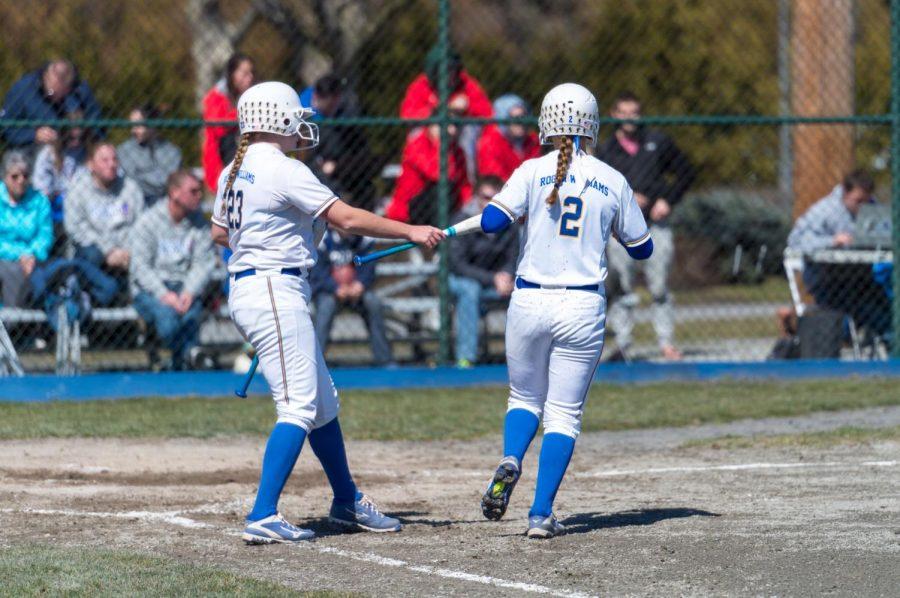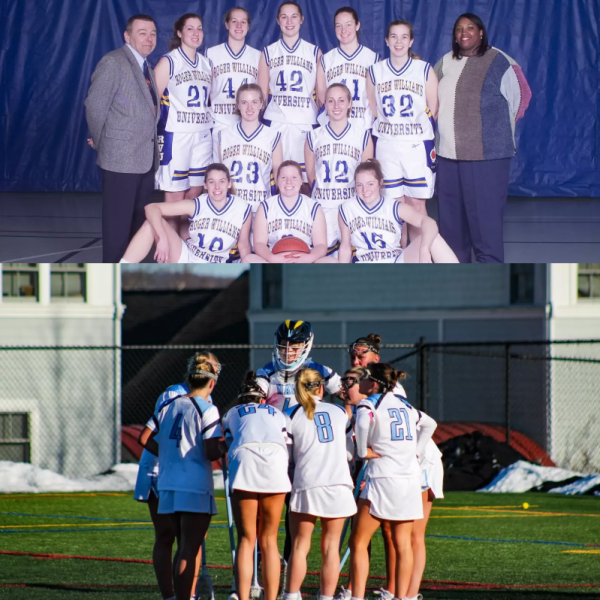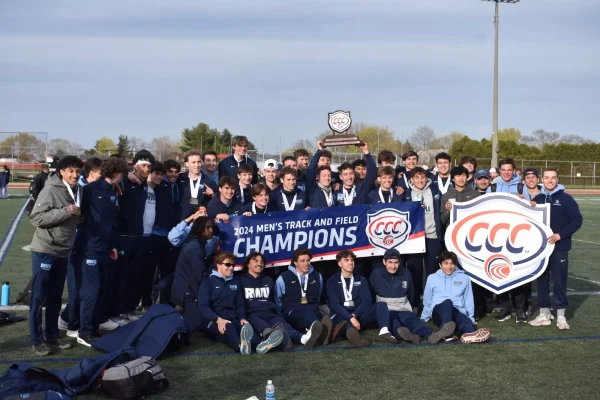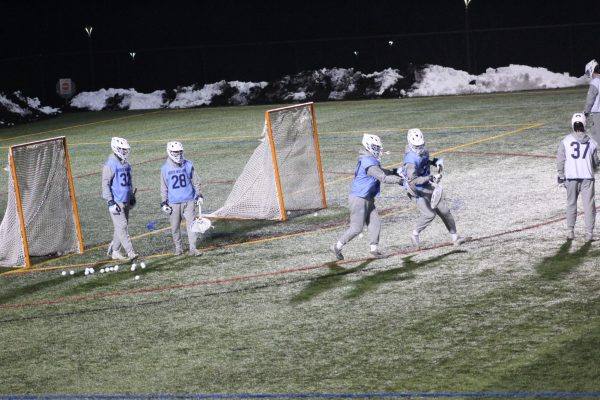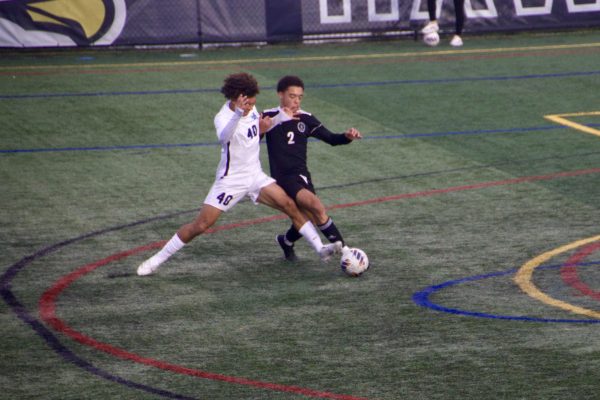RWU softball athlete Haley Ledbetter perseveres through injury to help team
Tyger Allen
Herald Contributor
Junior Haley Ledbetter prepares for her push off second base at Paolino Field in front of a home crowd. She brings one arm up and throws the other behind her as soon as the yellow softball crosses the plate after it is released from the Coast Guard Academy pitcher’s hand. As she takes her lead run off the base, she turns her body to begin her shuffle. In this motion, her knee pops. She digs her right cleat into the dirt and turns around to retreat, limping slightly. Once standing on top of the base, she waits. Throughout her 16 years of softball, her knee has always popped right back into place.
Ledbetter kept waiting, but the knee failed to cooperate. She felt like the tendons in her knee were being grabbed by something while she waited at second. After the inning, she took a slow walk to the dugout along the third base line. Following the game, Ledbetter was taken to the athletic trainer. The trainer examined her left knee and called for a surgeon to take a look. Both concluded that Ledbetter had torn her meniscus.
“The pain will be there for a while and then your meniscus will move… and you won’t feel pain,” Ledbetter said. “You could never feel pain again or you could feel pain every time you walk.”
Ledbetter is a marine biology major who came to Roger Williams from Westerly, Rhode Island. For three years she has played shortstop for the Hawks and bats second. For players that have played above 25 games this season, Ledbetter has the third-best batting average and second-best on-base percentage. Hitting in the second spot allows those who follow Ledbetter the opportunity to bat runs in.
“I know she’s going to do something great every time,” says senior Merri Moise, who bats just before Ledbetter. “You can always count on [Ledbetter] to get on base and make something happen.”
Before games, Ledbetter walks into the locker room and puts on her white pants and blue cleats, then buttons up her jersey with the team name “Hawks” in script on the front and the number “23” on the back. She holds a stick of eye black and draws an upside-down “L” on one side of her face, and then mirrors it on the other. She walks to the trainer, giving enough time to prepare her knee for each game. Electronic stimulation pads are placed around the knee and then joined by ice packs to prepare her for gameplay.
A meniscus tear, if severe enough, can cause the knee to stop functioning properly. Ledbetter awaits results from her surgeon to see if she requires surgery that would cause her to miss at least six weeks of activity.
After 15 minutes, the trainer frees her leg and pulls out a roll of tape. Ledbetter sits for 10 minutes while the trainer continuously wraps her knee, limiting its motion, but protecting it from another serious injury.
Ledbetter stands at shortstop, waiting to react to the ball’s movement. Pitcher Juliet Hulme releases her pitch and the batter swings. The ball connects with the bat and begins to bounce straight towards Ledbetter. It repeatedly kicks off the infield dirt and bounces up over her glove, smacks her left knee, and bounces away from her reach. Her hand holds her knee as she walks around to shake the pain away. After a quick inning, she walks to the bench and sits, waiting for the aching to stop. It quiets down after some time and she is able to continue playing.
Despite her injuries, Ledbetter finished the regular season with 42 hits, 19 runs batted in, and a team-leading six sacrifice bunts after starting all 38 games played by the team. Through the injury, Ledbetter is able to help the team by consistently getting on base, posting a .407 on-base percentage both this year and last.
“The people surrounding you want to see you succeed,” Ledbetter said. “So you try and persevere for them.”

